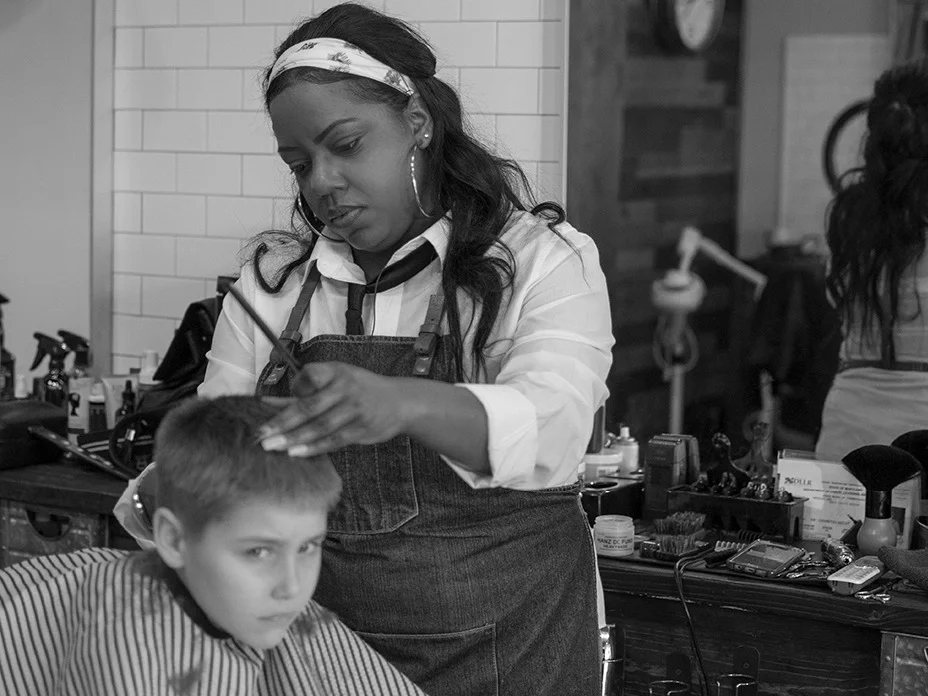"Black Barbers for All?": Challenges Black LGBTQ+ people face in Black barbershops
Tenia “Tee” Nelson from Legends Barber Co. located in Howard County, Maryland; (Legends Barber Co.)
The impression of the Black barbershop that is sought as a safe space for Black people can be a stressful reality for Black-queer people just looking for a haircut.
Throughout history, hair salons and barbershops have been seen as a space for Black people to talk about their lives free from judgment. They are spaces to talk about sports, relationships, politics and Black barbers have been there to listen to it all.
“It’s on the barber to make you feel comfortable because you know, we are counselors, we are therapists. That’s part of the job they don’t tell you that you signed up for,” said Tenia “Tee” Nelson, a barber at Legends Barber Co. in Elkridge, Maryland.
Though the topic of homosexuality, and more specifically Black homophobia, is a conversation that the Black community rarely likes to have with itself. It leaves LGBTQ+ members of the Black community feeling excluded when entering Black spaces because they don’t feel confident enough to be their authentic selves.
“Growing up going to Black barbers before I understood my identity, I never saw a problem because it was just sports. But as I got older and my barber would bring up girls, I would just become uncomfortable because that’s gonna bring up my actual experiences,” said Javien Dawson, a sophomore international relations major who identifies as pansexual.
Pansexuality, or “pan” for short, is on the LGBTQ+ spectrum of people attracted to someone regardless of their sex or gender.
The lack of conversation about LGBTQ+ issues puts a sense of obligation on Black-queer people to educate others when the topic arises.
“Let’s say they bring up Lady Gaga, Lil Nas X, other gay artists, or queer culture. I would notice that conversation starting up and I would clarify for others there,” said Dawson. “I don’t feel obligated to educate white people about certain issues. But for Black spaces, to educate other Black people, about different Black experiences; I do feel obligated to do that cause it’s about empowering our people.”
However, Black barbers and clients agree that the general conversation of queer culture in the Black community is lacking.
“Most of the time Black people are indifferent and have no comment. We don’t speak about it enough in the Black community at all,” said Nelson.
Unfortunately, Black barbershops are not always inclusive spaces and educating older generations to become comfortable with Black queerness will take time. But for now, Black-queer people can look to the new generation of barbers entering these spaces.
“If you go up to a barbershop with a lot of older men, you’re gonna get a different experience. If you go to a more modern younger crowd for the most part it won’t matter to us,” said Nelson.
With queer culture becoming more mainstream, these sacred Black spaces must begin to represent and respect the experiences of all Black people. Black-queer clients should be hopeful that the future of barbers will reflect the diversity of the current generation.

